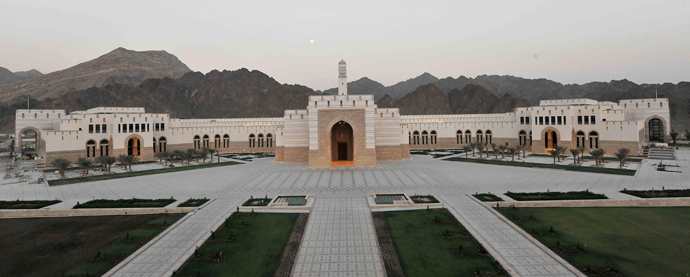
Muscat: Oman’s Housing Ministry is operating according to a clear and strategic approach, and its doors are not closed to its citizens, the Minister of Housing told Shura Council members on Wednesday.
The Shura Council had invited Sheikh Saif Al Shabibi, Minister of Housing, to the 17th Shura Council Session, to deliver a statement and participate in an open question and answer session with Council members.
During the meeting, Al Shabibi discussed the various challenges the ministry faces today, including the topographic nature of the Sultanate, the increase in land requests and the unavailability of land, as well as current financial challenges the country is facing.
“The Ministry has accomplished many of its goals. We are one of the countries where citizens own housing at a rate of 89 per cent. During the next five-year plan, housing assistance will reach OMR400 million, though requests for housing assistance have decreased to 30 per cent, following the social and economic improvement of the eligible families,” Al Shabibi said.
The minister also explained that the number of families benefiting from the Housing Assistance Programme has reached 16,246 families, amounting to OMR362,603,464. As for the loans programme, 4,454 families have received benefits worth OMR106,761,709.
Hamoud Al Yahyai, a Shura member, suggested that housing aid should be transferred to the Ministry of Social Development, in order to alleviate the Ministry of Housing’s responsibilities.
Minister Al Shabibi explained, “We have no objection to the transfer of housing aid for the Ministry of Social Development, as we work together for the benefit of the citizens.”
The minister also explained that the ministry has been taking note of vacant apartments and buildings, and in cooperation with real estate developers, affirmed the search for a mechanism to make use of them.
He also touched upon land ownership by non-Omani owners, where he indicated that 33,000 Gulf Cooperation Council citizens own land in Oman for various uses. Council members also called for the speeding up of procedures relating to ownership and building on land.
“Citizens, who are eligible for housing assistance, cannot afford to wait because they need it the most. The Ministry of Housing should have prior coordination with other parties involved regarding the provision of services, so that individuals building their land should not have to wait for long periods of time,” said Ahmed Al Hadhri, a Shura member.
The minister explained that their goals include shifting to electronic services in order to cut down on delays. “There is a basis for strengthening the services provided. After the electronic shift, there will be no delay in transactions, and citizens can follow up with their cases easily,” he said.
On the other hand, Council members expressed concerns at the land being allocated in risky locations.
Hamdoun Al Fazzari, a Shura member, said, “The disadvantage of virtual planning for land on satellite maps is the occurrence of lands granted to citizens in wadi areas and on the slopes of the mountains. Faults in planning for satellite maps have caused citizens to bear high costs when building in these areas.”
Another Shura member, Aziz Al Hassani, proposed sea-levelling and mountain-breaking in order to provide new and suitable land for citizens to face the scarcity of land. Council members also suggested that residential and industrial land charges should be reduced. However, the minister responded by explaining that it would not be feasible under the current economic conditions.